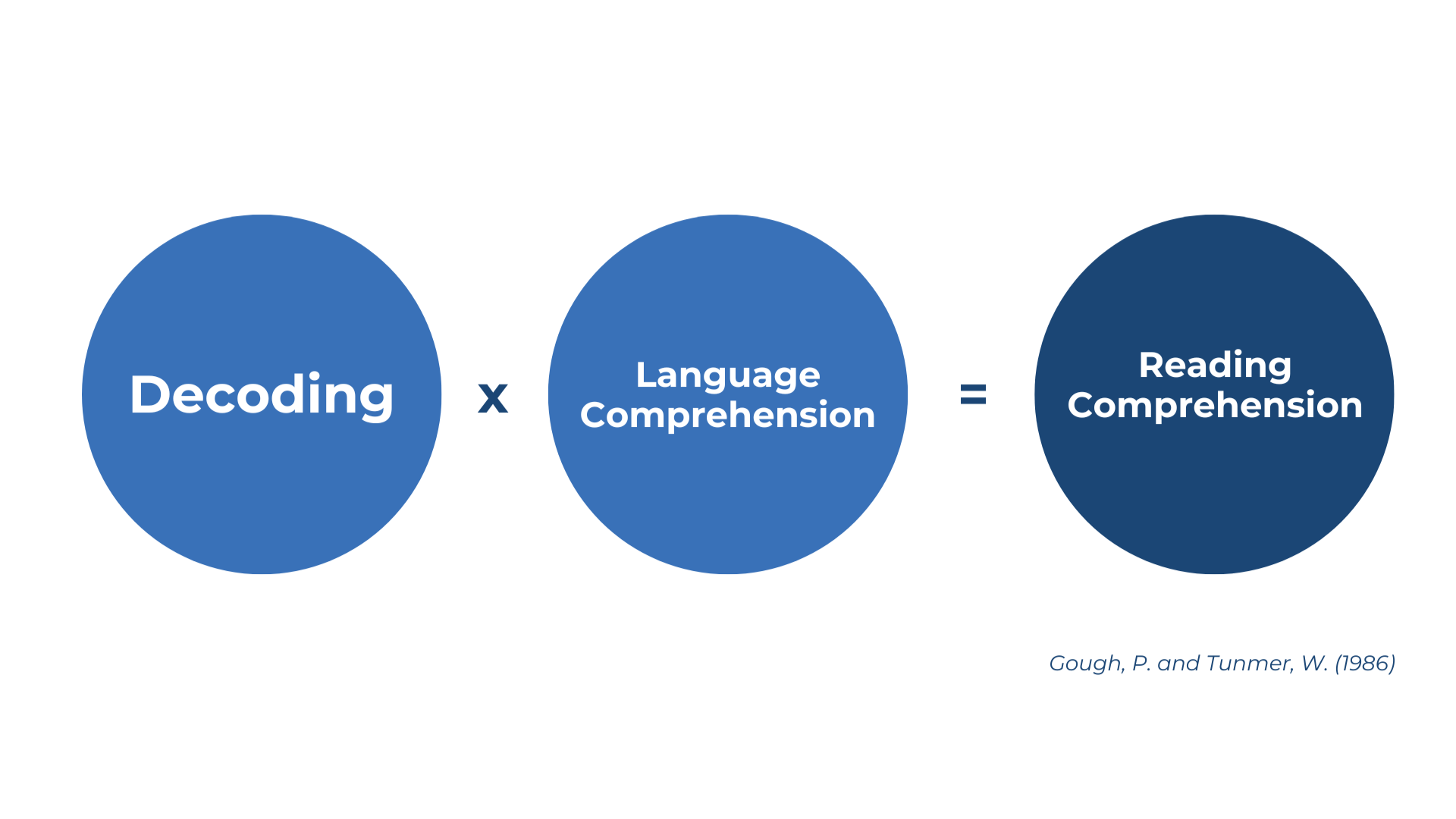At The Roig Academy, We Use A Science-Driven Literacy Model.

Orton-Gillingham: A Structured Literacy Approach
The Orton-Gillingham approach, algined with the Science of Reading, is a structured, systematic, and multi-sensory approach aimed at developing foundational literacy skills. Rooted in decades of cognitive and linguistic research, Orton-Gillingham explicitly teaches the relationship between phonemes (sounds) and graphemes (letters), reinforcing decoding and encoding processes essential to reading fluency. This method is particularly effective for students with dyslexia and other reading challenges. The Orton Gillingham approach address the “D” (Decoding) component of Gough & Tunmer”s Simple View of Reading, ensuring students build automaticity in decoding and gain full access to text.
Fast ForWord: Strenghtening Cognitive & Linguistic Comprehension
The Fast ForWord program, a neuroscience-based intervention, enhances phonemic awareness, auditory processing speed, working memory, and attention-all essential for fluent reading and comprehension. Grounded in cognitive science, Fast ForWord strengthens the “L” (Language Comprehension) side of the reading equation, reinforcing the brain’s ability to process language efficiently, supporting high-order reading skills and long-term academic success.
Why this Approach Works
This approach combines Orton-Gillingham’s structured instruction with Past Forword’s cognitive training to improve decoding and comprehension. The summer camp is ideal for students needing evidence-based instruction to strengthen literacy skills.
Young Authors & Math Minds: A Writing, Publishing, and Problem-Solving Workshop
In this expanded program, students sharpen their numeracy and computation skills while tackling word problems that build practical problem-solving abilities. They also explore the art of storytelling—drafting, revising, and publishing written works to strengthen their reading and writing fluency. With hands-on activities in both writing and math, participants grow into confident authors and adept problem solvers, ready to excel across the curriculum.

Young Author’s Writing & Publishing Workshop
Young Authors’ Writing & Publishing Workshop extends our summer reading program, where students learn to write with clarity and creativity while exploring different storytelling styles, poetry, and informational writing.
Through hands-on activities, they will draft, revise, and publish their works, gaining confidence as young authors.

The Summer Slide- What Every Parent Needs to Know
Students can return to school in the fall at least a month behind, on average, where they were in the spring, but high-quality summer programs can help combat this summer learning loss, finds a report released by the RAND Corp.
“Making Summer Count: How Summer Programs Can Boost Children’s Learning” is the first comprehensive evaluation of past studies and new research on summer learning loss and summer programs for K-8 students. The research, supported by
The Wallace Foundation, offers findings on the nature of summer learning loss and its disproportionate impact on low-income students (particularly in reading), characteristics of successful summer programs that can combat the summer slide, and suggestions for districts that want to implement summer programs but have funding barriers that make implementation a challenge.
Keeping Children off the Summer Slide
Something is waiting for many children each summer and their parents, don’t even know it’s out there. It’s called the “summer slide” and it describes what happens when young minds sit idle for three months. As parents approach the summer break, many are thinking about the family vacation, trips to the pool, how to keep children engaged in activities at home, the abrupt changes to everyone’s schedule-and how to juggle it all. What they might not be focusing on is how much educational ground their children could lose during the three-month break from school, particularly when it comes to reading.
Experts agree that children who read during the summer gain reading skills, while those who do not often slide backward. According to the authors of a report from the National Summer Learning Association: “A conservative estimate of lost instructional time is approximately two months or roughly 22 percent of the school year. It’s common for teachers to spend at least a month re-teaching material that students have forgotten over the summer. That month of re-teaching eliminates a month that could have been spent on teaching new information and skills.”
We would love to meet you.
Please complete the questionnaire below, and our Head of School or admissions coordinator will contact you.
"*" indicates required fields
